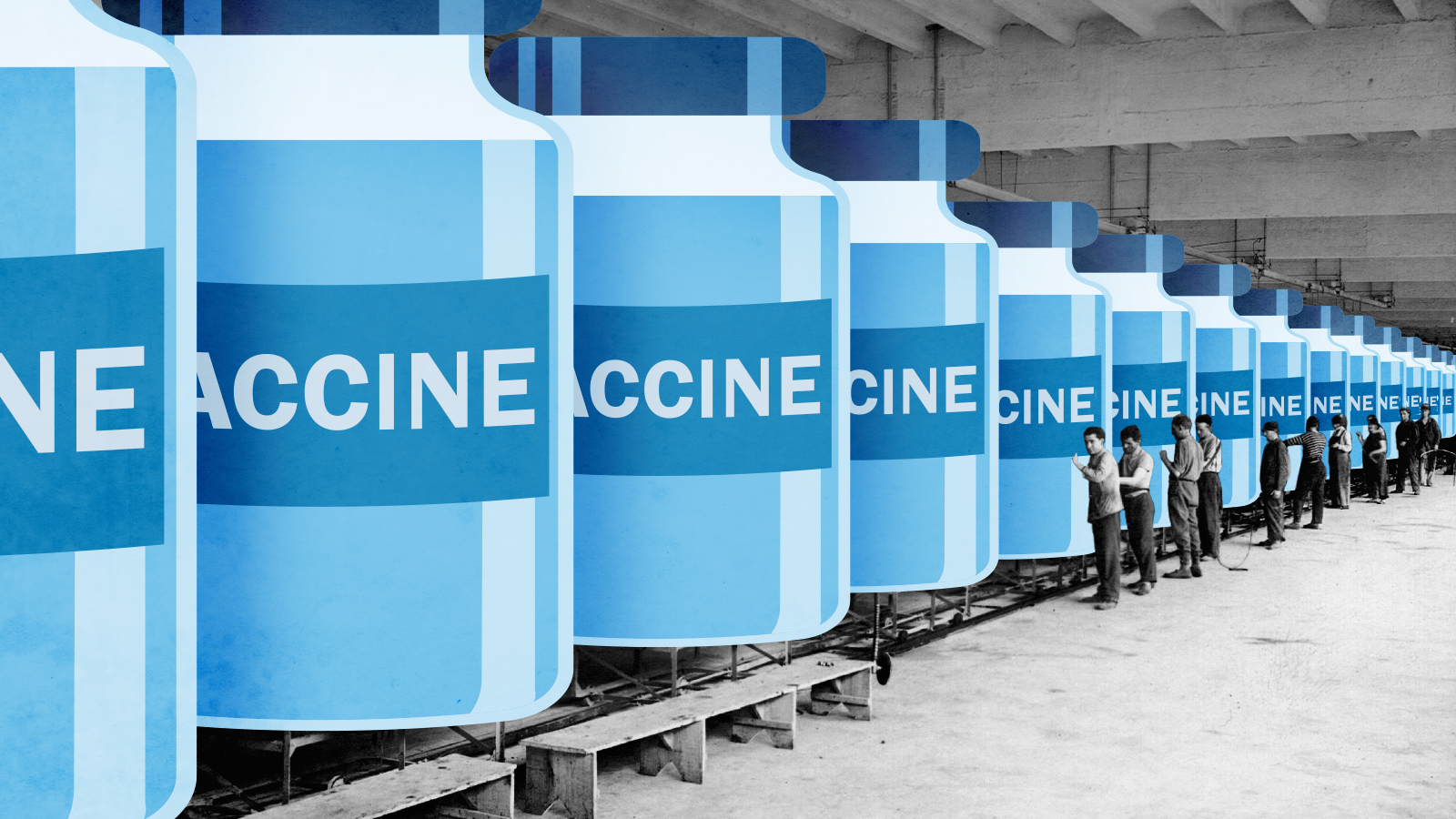The time to build a giant vaccine factory is now


A free daily email with the biggest news stories of the day – and the best features from TheWeek.com
You are now subscribed
Your newsletter sign-up was successful
The latest data on the Omicron variant is very troubling. As the Financial Times' John Burn-Murdoch points out, it's creating a wave of infections in South Africa that thus far is moving even faster than the Delta variant. It's already been detected in multiple American states, and given poor U.S. surveillance of infection, it's probably all over the place already. It also seems that the immunity created by a prior infection is less good against Omicron, which may imply the American South is in for another devastating wave soon.
So long as millions and millions of people around the world are unvaccinated, above all in Africa, this could keep happening over and over. As Edward Luce points out (also at FT), the U.S. has pledged some two billion doses of vaccines to poorer countries, but so far has delivered only about 111 million. Only about 5 percent of Africans are vaccinated, which raises the risk of even worse variants coming after Omicron.
What the world needs is a giant excess of vaccines. Rich countries are always going to prioritize their own citizens, for good reasons or bad. We need so much that every single country can have a big surplus, and then some — so the more difficult bottlenecks in administration and hesitancy can be addressed.
The Week
Escape your echo chamber. Get the facts behind the news, plus analysis from multiple perspectives.

Sign up for The Week's Free Newsletters
From our morning news briefing to a weekly Good News Newsletter, get the best of The Week delivered directly to your inbox.
From our morning news briefing to a weekly Good News Newsletter, get the best of The Week delivered directly to your inbox.
Uncle Sam could have made this happen. Back in May, I pointed out that a large, state-owned vaccine factory that could churn out on the order of 15 billion doses of the mRNA shots (which are easier to manufacture en masse for technical reasons) per year would cost only about $4 billion — a microscopic pittance compared to the $5 trillion or so America has spent on pandemic relief measures. If we'd done it then, the first doses would be coming out about now.
The best time to start building such a factory would have been a year ago, but the second-best time would be right now. We may need Omicron-specific boosters, or other ones after that. And who knows what pandemics might be in store for the future? Let's make sure for the next one humanity isn't caught flat-footed.
A free daily email with the biggest news stories of the day – and the best features from TheWeek.com
Ryan Cooper is a national correspondent at TheWeek.com. His work has appeared in the Washington Monthly, The New Republic, and the Washington Post.
-
 How the FCC’s ‘equal time’ rule works
How the FCC’s ‘equal time’ rule worksIn the Spotlight The law is at the heart of the Colbert-CBS conflict
-
 What is the endgame in the DHS shutdown?
What is the endgame in the DHS shutdown?Today’s Big Question Democrats want to rein in ICE’s immigration crackdown
-
 ‘Poor time management isn’t just an inconvenience’
‘Poor time management isn’t just an inconvenience’Instant Opinion Opinion, comment and editorials of the day
-
 A Nipah virus outbreak in India has brought back Covid-era surveillance
A Nipah virus outbreak in India has brought back Covid-era surveillanceUnder the radar The disease can spread through animals and humans
-
 Covid-19 mRNA vaccines could help fight cancer
Covid-19 mRNA vaccines could help fight cancerUnder the radar They boost the immune system
-
 The new Stratus Covid strain – and why it’s on the rise
The new Stratus Covid strain – and why it’s on the riseThe Explainer ‘No evidence’ new variant is more dangerous or that vaccines won’t work against it, say UK health experts
-
 RFK Jr. vaccine panel advises restricting MMRV shot
RFK Jr. vaccine panel advises restricting MMRV shotSpeed Read The committee voted to restrict access to a childhood vaccine against chickenpox
-
 RFK Jr. scraps Covid shots for pregnant women, kids
RFK Jr. scraps Covid shots for pregnant women, kidsSpeed Read The Health Secretary announced a policy change without informing CDC officials
-
 New FDA chiefs limit Covid-19 shots to elderly, sick
New FDA chiefs limit Covid-19 shots to elderly, sickspeed read The FDA set stricter approval standards for booster shots
-
 RFK Jr.: A new plan for sabotaging vaccines
RFK Jr.: A new plan for sabotaging vaccinesFeature The Health Secretary announced changes to vaccine testing and asks Americans to 'do your own research'
-
 Five years on: How Covid changed everything
Five years on: How Covid changed everythingFeature We seem to have collectively forgotten Covid’s horrors, but they have completely reshaped politics
